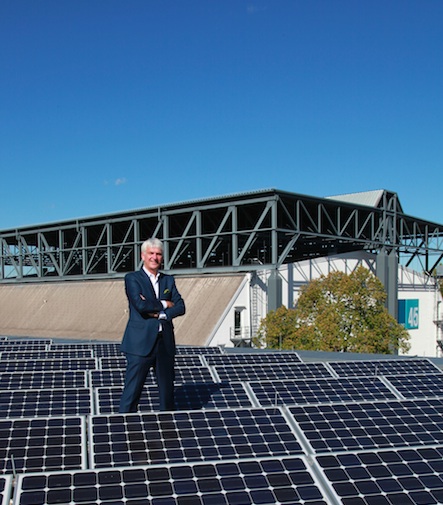
With the dramatic reduction of its CO2 footprint, Bavaria Film is setting new environmental standards for international studios. Thanks to electrical power generated by renewable water power and heat supplied via geothermal energy, on-site and in-production emissions have been gradually reduced. Achim Rohnke, CEO Bavaria Studios & Production Services, discusses the balance between economy and ecology.
What is Bavaria Film’s current climate balance?
We are working in tandem with the consulting firm Climate Partners on our climate protection strategy, which is based on the Corporate Carbon Footprint, to avoid and reduce CO2 emissions. According to our most recent tabulated results, we have been able to reduce our carbon footprint by almost 97.5% during the 2011–2014 period.
What kind of measures had to be taken?
As a Film/TV studio, we are pursuing the reduction of greenhouse gas emissions. Our sustainability philosophy touches upon all sectors of studio operation, including each department up to and including production. The Bavaria Studios Art Department has been conceived as a model company for low-energy consumption. The rooves of the two set decoration halls have been equipped with solar panels that supply us with energy. The left-over materials created during set construction by sawing and planing are stored in a silo. During the winter, this material is used for heating and supplying power to the shop when there is the least amount of sunlight.
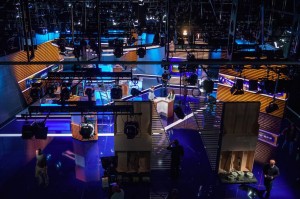 What was your concept for the energy turnaround?
What was your concept for the energy turnaround?
First of all, I was concerned with energy conversion measures, such as supplying heat by geothermal gradient, then the renegotiation of existing energy contracts in favor of regenerative water power, and finally the gradual installation and expansion of the use of solar panels on roof tops. I want to add that there are still many small modifications that can be made to improve efficiency, which is happening as part of, among other things, the City of Munich’s Ökoprofit Project. This includes: the centralization of air conditioning systems; the modernization of lighting in the studio lot, as well as the gradual conversion to LED lighting in the studios. We just repurposed Studio 8 as a web video studio for young YouTubers. It’s fully equipped with LED lamps — the same ones our production suites in Berlin use. The FTA Film-und Theater-Ausstattung property rental house comes up with attractive offers to influence the purchasing decisions made by the productions. Because renting is more sustainable than buying.
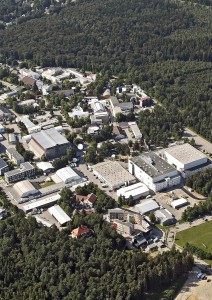 What is the balance between economy and ecology about?
What is the balance between economy and ecology about?
Ecology and economy do not contradict one another in the Green Economy, because, thanks to measures such as the conversion to LED or centralized climate supply techniques, the costs of power, water, and heat are also declining. Of course, it was, first of all, an investment issue to implement these measures, as well as the conversion to solar power. Geothermal migration would not have been possible without the partnership of the Municipality of Grünwald. When we purchase energy, we’re choosing water power.
Are all the productions at the studio now automatically sustainable?
The measures which I pointed out are affecting all the productions on our site. Each production at Bavaria Studios — regardless of whether it is episodes, series, or big shows — is automatically cutting up to 70% of its CO2 emissions.
Is that also a USP?
For the German producer/director Michael „Bully“ Herbig, it was important to produce his sitcom Bully macht Buddy in a climate-neutral site. Green production at our studio got started with the weather report Wetter im Ersten. We are also producing Sturm der Liebe, the first climate-neutral soap in Germany, which went green two years ago. We can compile a CO2 balance sheet for productions in order to determine in which sectors it’s possible to compensate for the emission output with certificates. At the moment, we’re talking with all the productions working at the Geiselgasteig site. They are pretty open when it comes to green production.
Does Bavaria Film act as a role model?
We are living our philosophy. Our green guidelines influence our employees in the office, in the studio, and on the road. We even have an electric charging station where our employees and customers can recharge their electric cars. We are also consulting with producers who want to take advantage of the benefits of the climate-neutral studio in Bavaria. But they have to take the initiative.
Among the most recent international productions at Bavaria Filmstudios was Oliver Stone‘s film on Snowden. Do the producers in Hollywood put more emphasis on sustainability?
Oliver Stone thinks our green studio philosophy is interesting. For Kevin Costner, this was a very big issue. This shows the bandwidth of opinions on the subject. I got that feeling recently when I went to the AFM as a member of a delegation. Our very first meeting was with Lucasfilm, whose central offices were constructed entirely from recycled materials. We are going to proceed in a similar fashion. Our upcoming construction projects will be designed on the basis of a project outline that includes ecological standards. During my trip to the USA, I also learned that our green production site is actually a real USP, one that we have to promote much more vigorously in our industry. We’re going to emphasize this from now on, because we can show producers, in our proposals as well as in our invoices, the amount of CO2 emissions they can or already have saved by producing at Bavaria Filmstudios. We are convinced that the Green Economy is the road to success for the Film/TV production industry.
Interview by Bernd Jetschin




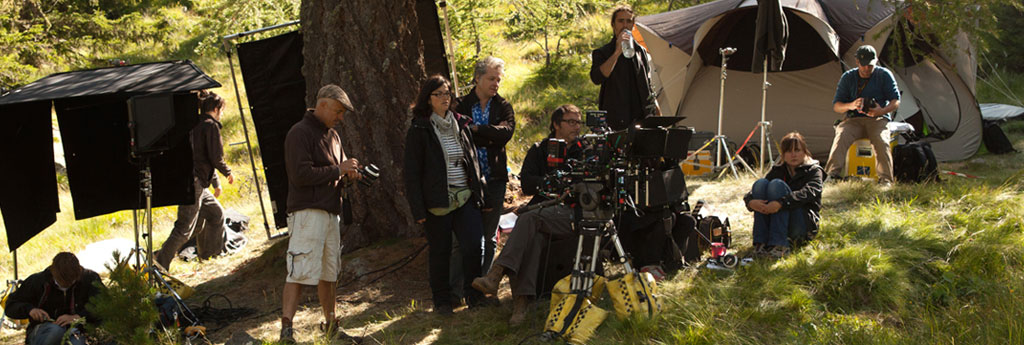









 Robert Redford
Robert Redford Hannes Jaenicke
Hannes Jaenicke Nic Balthazar
Nic Balthazar Nadeshda Brennicke, Actress
Nadeshda Brennicke, Actress Darren Aronofsky, Director, Noah / Jury President, 65th Berlin International Film Festival
Darren Aronofsky, Director, Noah / Jury President, 65th Berlin International Film Festival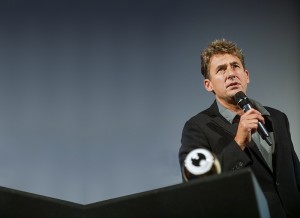 Tim Bevan
Tim Bevan Thekla Reuten
Thekla Reuten Rachael Joy
Rachael Joy Nikola Rakocevi
Nikola Rakocevi Nadja Schildknecht
Nadja Schildknecht Michael Bully Herbig
Michael Bully Herbig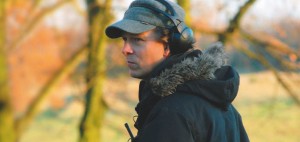 Lars Jessen
Lars Jessen Helen Hunt
Helen Hunt Douglas Trumbull
Douglas Trumbull Dieter Kosslick, Director Berlin International Film Festival
Dieter Kosslick, Director Berlin International Film Festival Benoit Delhomme
Benoit Delhomme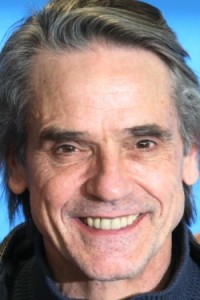 Jeremy Irons
Jeremy Irons